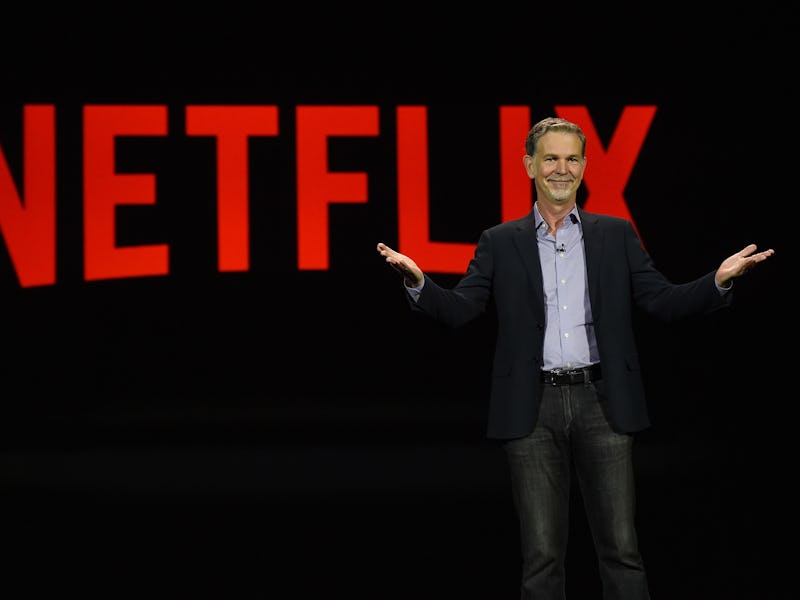Netflix CEO: If You Can't Beat 'Em, Join 'Em
"Just like HBO."

If there way one takeaway from a talk by Netflix CEO Reed Hastings at this year’s Mobile World Congress, it was this: If you can’t beat ‘em, join ‘em.
That’s hardly the attitude you’d expect from the company that was supposed to destroy the status quo for TV, but it would seem that the pressures of the modern market have nonetheless reduced the streaming giant to, in its own estimation, another basic part of the entertainment ecosystem, “just like HBO.” And once a company becomes a fully integrated part of a system, you can no longer expect that company to really try to blow up the system.
The idea of making peace with prior evils came up several times — previously at war with data and speed caps imposed by internet service providers like Comcast, Hastings instead found himself sticking up for them.
First, Hastings spoke favorably about a hypothetical “two-tiered” system in which video content was not subject to overall data caps. Then, he began preparing the audience for the future by making an argument that would have been unthinkable not so long ago: A half-megabit speed cap for video won’t be so bad, he said, since they’ve been working on video codecs that can provide “incredible picture quality” with those small pipes.
Netflix is clearly beginning to realize that it does not have the clout to be the endless change agent it once believed itself to be. The realities of the market, and particularly of copyright, are catching up with the service, and though its membership numbers have remained strong, its library of content is shrinking, and it has seemingly accepted that it must reach a diplomatic solution in which it, too, must make some concessions.
Now, rather than fighting the oncoming wave of online restrictions, the priority at Netflix appears to be creating both the technology and the public mindset needed to avoid losing masses of users, when the inevitable changes do occur. This means getting people used to the idea that an internet connection capable of streaming Netflix in HD will probably be a more extravagant luxury in the future — and that Netflix has resigned itself to that reality going forward.
The reason for the change was made clear by Hastings himself: neither Netflix itself nor the industry at large still believe the streaming giant can single-handedly take on the world. Hastings pointed out that while Netflix is in half of all U.S. homes, the world has yet to see any reality to the old prediction that such a level of success would necessarily lead to a steady decline in regular television subscriptions. On the contrary, television has now become secure in its new place.
So, looking forward to a world in which Netflix will have no choice but to forge lasting relationships with traditional media companies that own both vital infrastructure and the majority of all content rights, the calculus has fundamentally changed.